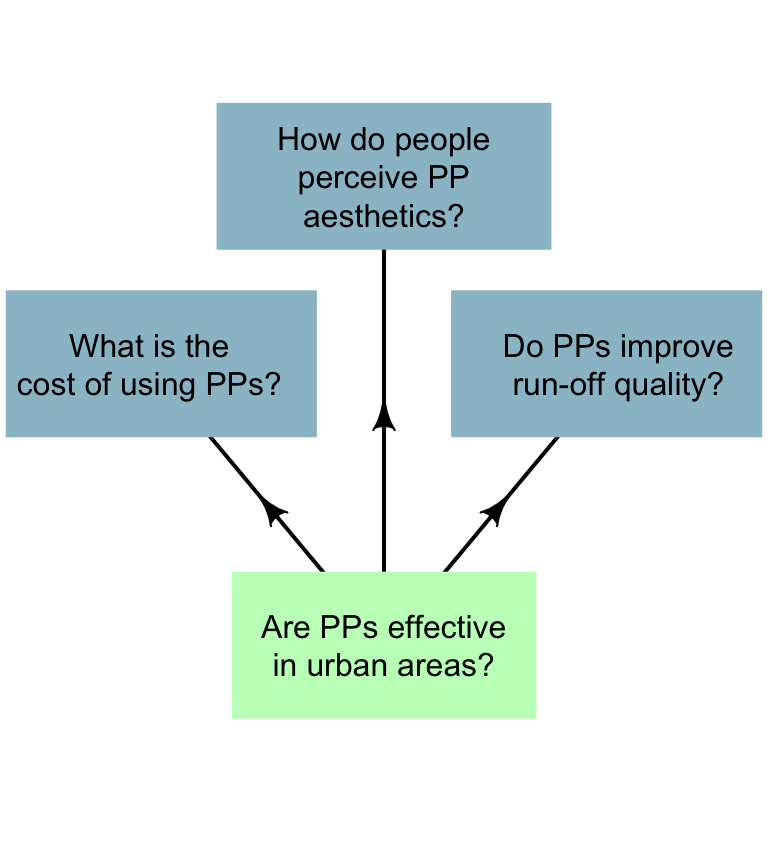2.1 Introduction
In research, asking clear and answerable research questions (RQs) is important. The data (evidence) that must be collected depends on the RQ.
In quantitative research, summarising and analysing the data typically uses numerical methods (such as averages or percentages), so the RQs must be appropriate for analysis using these methods.
For this reason, writing the RQ appropriately is important. The RQ drives all other aspects of the research (Fig. 2.1).

FIGURE 2.1: The RQ drives all aspects of the study
Defining the RQ precisely can be challenging. Studies often have an overall, broad research goal with many sub-question (which may be quantitative or qualitative).
Example 2.1 (Research questions) Consider this broad research goal:
How well are PPs (permeable pavements) working in urban areas?
This goal has many component RQs (Fig. 2.2), and each can be answered using separate studies.

FIGURE 2.2: A study of permeable pavements (PPs) may have many sub-questions